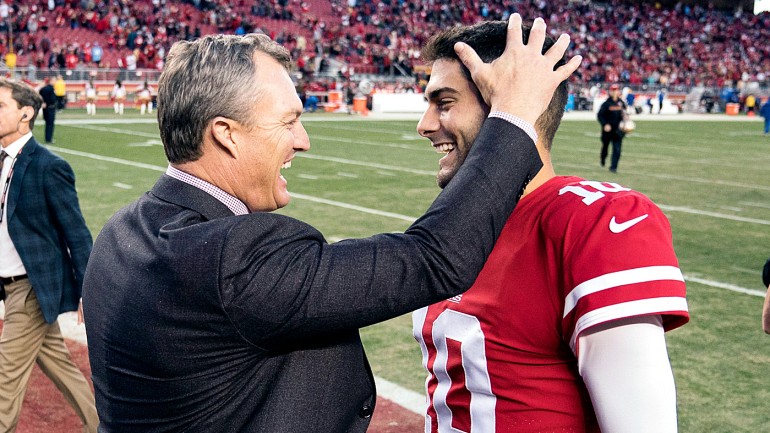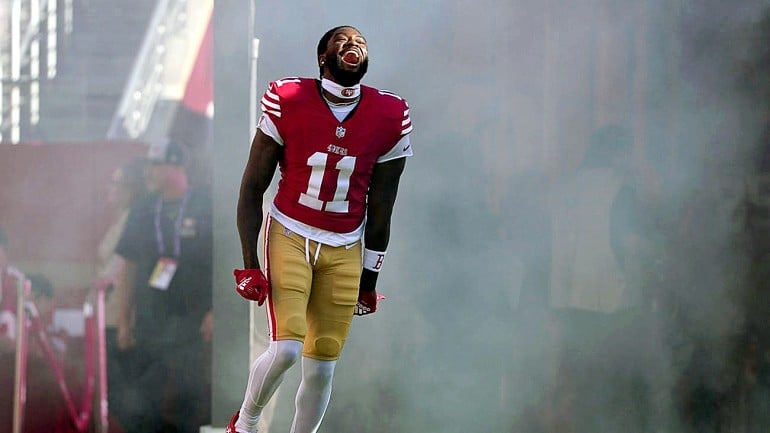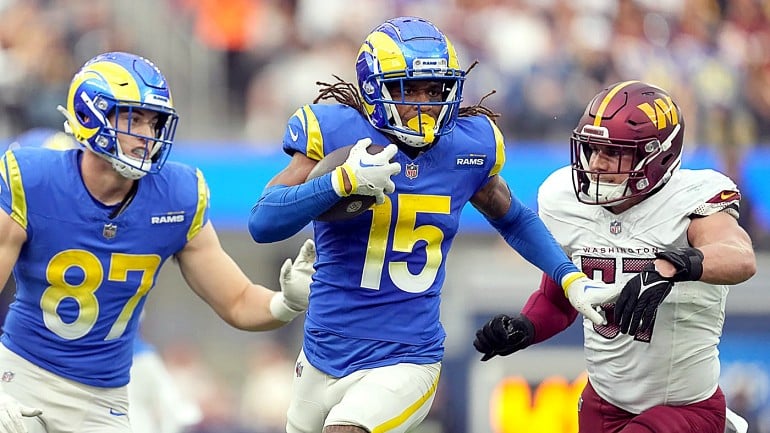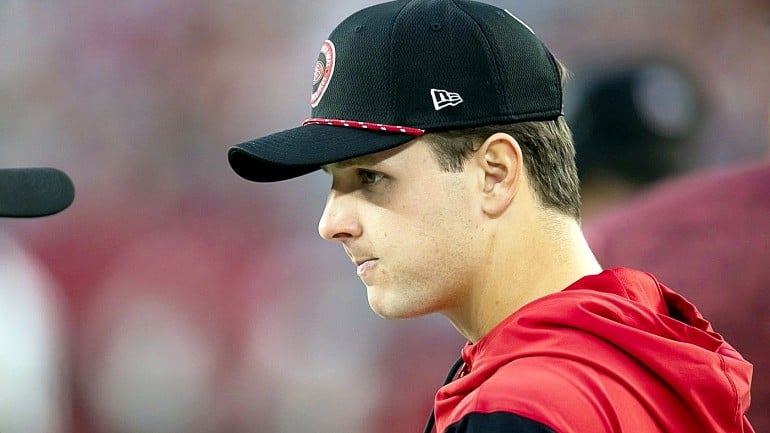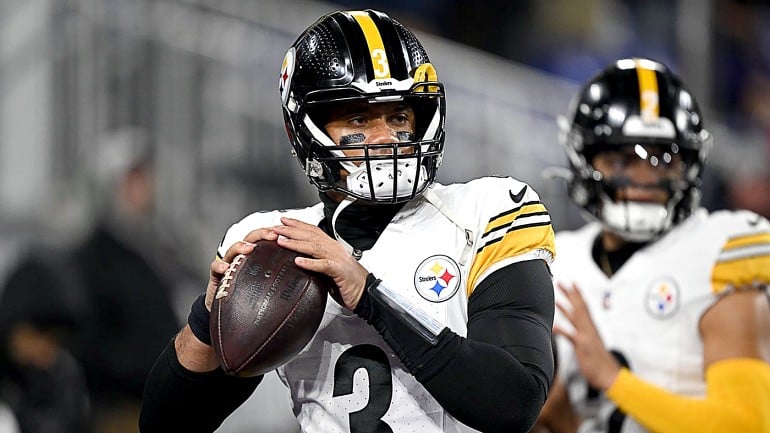There is an out on Jimmy Garoppolo's five-year deal — a record contract at the time of its signing — after the 2019 season. That means the San Francisco 49ers can take a look at what might be available in free agency and heavily research the incoming rookie class before committing to their starting quarterback for the future. The team will have until April 1 next year to make that decision.
I'm not saying that's what will happen or that the team will even consider it; just that it is an option. Head coach Kyle Shanahan and the 49ers seem fully committed to Garoppolo being their franchise quarterback.
The media is often critical any time the 49ers announce a massive deal. Those in the know, however, wait to see how the real numbers in any contract look. More times than not, they are team-friendly and the 49ers, if they choose to do so, can walk away after a one- or two-year evaluation period. Often, multi-year deals are actually year-to-year ones.
The 49ers don't hand out bad deals thanks to their chief contract negotiator, Paraag Marathe. It doesn't feel like that long ago that San Francisco was in salary cap hell, always finding itself brushing up against the league-imposed limit. Marathe has helped the 49ers escape that predicament.
One agent, Doug Hendrickson, is not a fan of the 49ers' current contract structure — a structure that protects the team from bad deals.
"The Niners' contracts are bullsh-t," Hendrickson recently told Vic Tafur of The Athletic. "They are team-friendly deals, they do the triggers in April versus normally in March, and no one has really had the leverage to change it."
Hendrickson represents the 49ers' third-round pick, wide receiver Jalen Hurd. However, it's not necessarily the rookie deals that upset the agent. The terms of rookie deals are mostly pre-determined thanks to the current Collective Bargaining Agreement with holdups usually surrounding the offset language within the contracts.
San Francisco's deals for veteran players are the ones which Hendrickson doesn't appreciate.
The 49ers were able to walk away from wide receiver Pierre Garçon's five-year deal after just two seasons because they became confident that a suitable and less expensive replacement could be acquired via the draft. Although, that decision was made well before April 1.
The 49ers can use the threat of a release as a negotiating tactic. For example, often-injured linebacker Malcolm Smith agreed in March to restructure his five-year deal initially worth up to $26.5 million. It became a one-year deal. Smith had very few options, and the 49ers had all of the leverage.
That's what Hendrickson doesn't like. The 49ers' deals give all of the leverage to the team and little to the players. San Francisco can simply move on should it find a suitable replacement or upgrade. Players are then left with a release date closer to April 1 when other NFL teams might have already filled any voids by signing veteran players.
"That's the benefit of the structure to the team — and its detriment to players," wrote Mike Florio of Pro Football Talk. "If the 49ers don't dump a guy like Garoppolo until April 1, teams looking for veteran quarterbacks may already have made other arrangements before Garoppolo hits the market."
It is important to note that because the option is there doesn't mean the 49ers always wait to take action. The team's decision-makers often release such players well before that April 1 deadline, as they did with Garçon, so that those individuals can get a jump on their search for a new home.
San Francisco signed often-injured cornerback Jason Verrett to a one-year prove-it deal during the offseason. If the team likes what it sees throughout the upcoming season, it can offer him one of its team-friendly year-to-year contracts.
H/t to Pro Football Talk for the find.
